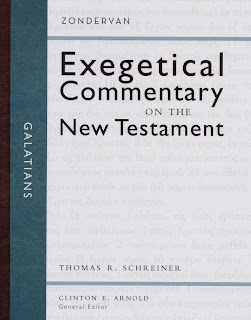The following list by Benjamin Mayes demonstrates the postmodern influence on theology insomuch as the meanings of words are dictated by the subjective whim of the user rather than a known objective standard.†
Begetting — creation.
Creation — the eternal generation of the world.
Demonic (according to Tillich)—fixed, unchanging; for example, orthodox theology.
Dynamic — changing, variable; NOT: powerful.
Economic Trinity — a god that changes and develops ontologically, usually taking three modes, “revealing” him- or herself to be father (or mother), Jesus, and the holy spirit (or “sophia”). This is the god of modern theology.
Eschatological — changing, variable; NOT: having to do with the visible return of Jesus.
Freedom — the state of being ontologically changeable, variable.
Heilsgeschichte — the view that God and religion are changing, variable; NOT: scholarly writing about the history of God’s Old and New Testament people and his relationship with them.
Historical — changing, variable; NOT: written about in a former time.
Idolatrous (according to Sallie McFague) — Absolutizing one tradition of images for God, not being pluralistic. Note: According to this definition, the Christian church was idolatrous from its beginning until modern times.
Immanent Trinity — God the Holy and Blessed Trinity per se, considered separately from his creation. Modern theology hates this God.
Passionate — changing, variable, able to be changed or harmed by others (passio), used by modern theologians especially of their god; NOT: genuinely concerned or interested.
Personal — changing, variable, ontologically dependent on the existence of others.
Relational — relative, changing, variable, ontologically dependent on the existence of others.
Static — having the character of “one who does not change,” and “who is the same,” and “with whom there is no variation or shadow of turning.” Modern theologians hate this quality, especially if it is used to describe God.
Theology of the Cross (according to Moltmann) — Father, Son, and Holy Spirit suffered and died on the cross. NOT: One of the Holy Trinity suffered for us.
† Taken from LOGIA, Volume 18, Number 4, 53.
Begetting — creation.
Creation — the eternal generation of the world.
Demonic (according to Tillich)—fixed, unchanging; for example, orthodox theology.
Dynamic — changing, variable; NOT: powerful.
Economic Trinity — a god that changes and develops ontologically, usually taking three modes, “revealing” him- or herself to be father (or mother), Jesus, and the holy spirit (or “sophia”). This is the god of modern theology.
Eschatological — changing, variable; NOT: having to do with the visible return of Jesus.
Freedom — the state of being ontologically changeable, variable.
Heilsgeschichte — the view that God and religion are changing, variable; NOT: scholarly writing about the history of God’s Old and New Testament people and his relationship with them.
Historical — changing, variable; NOT: written about in a former time.
Idolatrous (according to Sallie McFague) — Absolutizing one tradition of images for God, not being pluralistic. Note: According to this definition, the Christian church was idolatrous from its beginning until modern times.
Immanent Trinity — God the Holy and Blessed Trinity per se, considered separately from his creation. Modern theology hates this God.
Passionate — changing, variable, able to be changed or harmed by others (passio), used by modern theologians especially of their god; NOT: genuinely concerned or interested.
Personal — changing, variable, ontologically dependent on the existence of others.
Relational — relative, changing, variable, ontologically dependent on the existence of others.
Static — having the character of “one who does not change,” and “who is the same,” and “with whom there is no variation or shadow of turning.” Modern theologians hate this quality, especially if it is used to describe God.
Theology of the Cross (according to Moltmann) — Father, Son, and Holy Spirit suffered and died on the cross. NOT: One of the Holy Trinity suffered for us.
† Taken from LOGIA, Volume 18, Number 4, 53.



